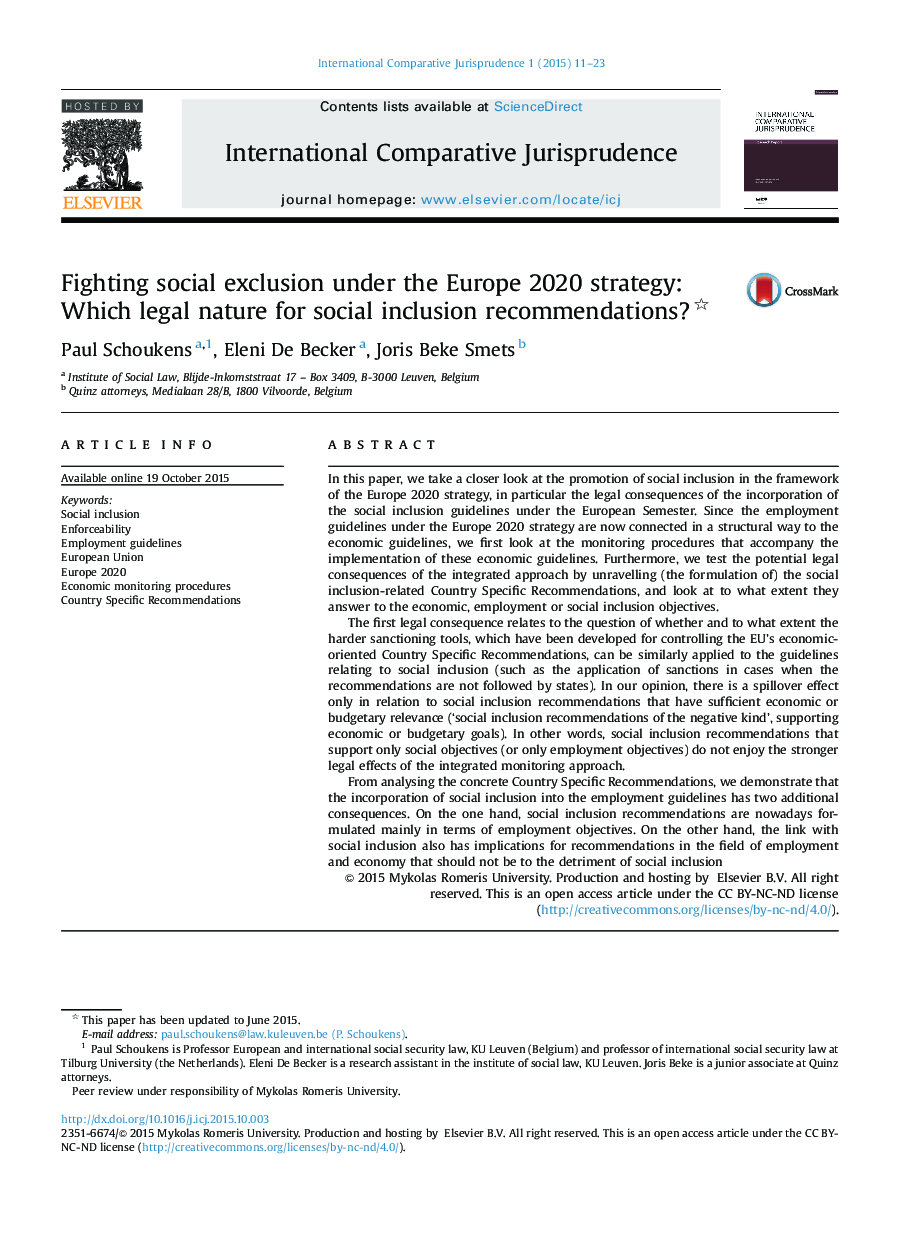| Article ID | Journal | Published Year | Pages | File Type |
|---|---|---|---|---|
| 1097796 | International Comparative Jurisprudence | 2015 | 13 Pages |
In this paper, we take a closer look at the promotion of social inclusion in the framework of the Europe 2020 strategy, in particular the legal consequences of the incorporation of the social inclusion guidelines under the European Semester. Since the employment guidelines under the Europe 2020 strategy are now connected in a structural way to the economic guidelines, we first look at the monitoring procedures that accompany the implementation of these economic guidelines. Furthermore, we test the potential legal consequences of the integrated approach by unravelling (the formulation of) the social inclusion-related Country Specific Recommendations, and look at to what extent they answer to the economic, employment or social inclusion objectives.The first legal consequence relates to the question of whether and to what extent the harder sanctioning tools, which have been developed for controlling the EU’s economic-oriented Country Specific Recommendations, can be similarly applied to the guidelines relating to social inclusion (such as the application of sanctions in cases when the recommendations are not followed by states). In our opinion, there is a spillover effect only in relation to social inclusion recommendations that have sufficient economic or budgetary relevance (‘social inclusion recommendations of the negative kind’, supporting economic or budgetary goals). In other words, social inclusion recommendations that support only social objectives (or only employment objectives) do not enjoy the stronger legal effects of the integrated monitoring approach.From analysing the concrete Country Specific Recommendations, we demonstrate that the incorporation of social inclusion into the employment guidelines has two additional consequences. On the one hand, social inclusion recommendations are nowadays formulated mainly in terms of employment objectives. On the other hand, the link with social inclusion also has implications for recommendations in the field of employment and economy that should not be to the detriment of social inclusion
